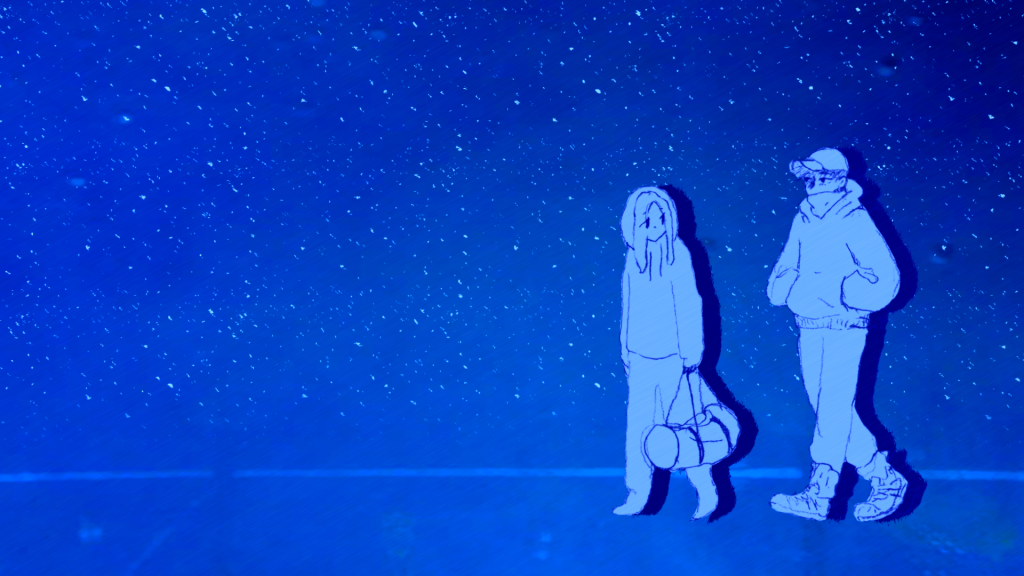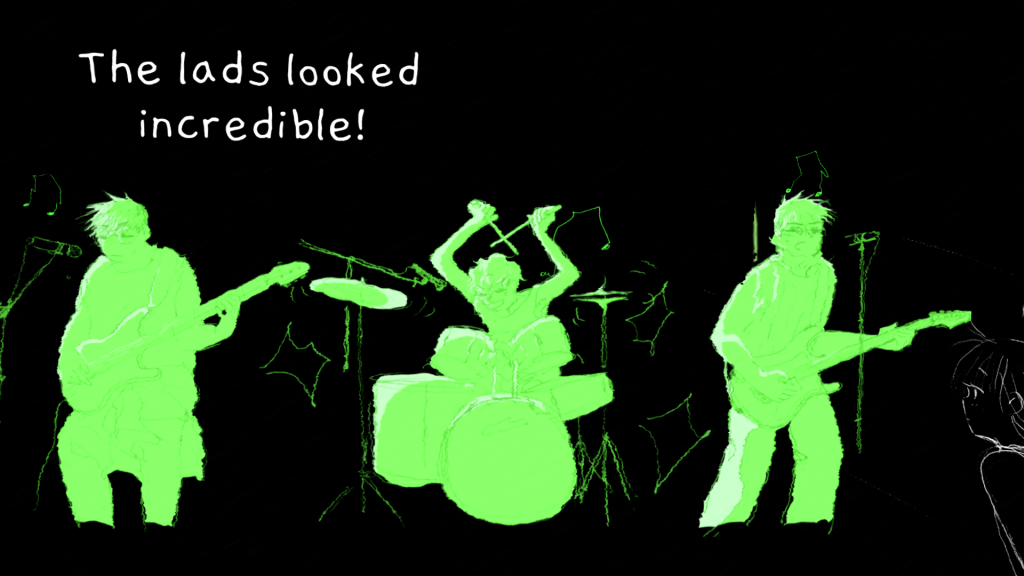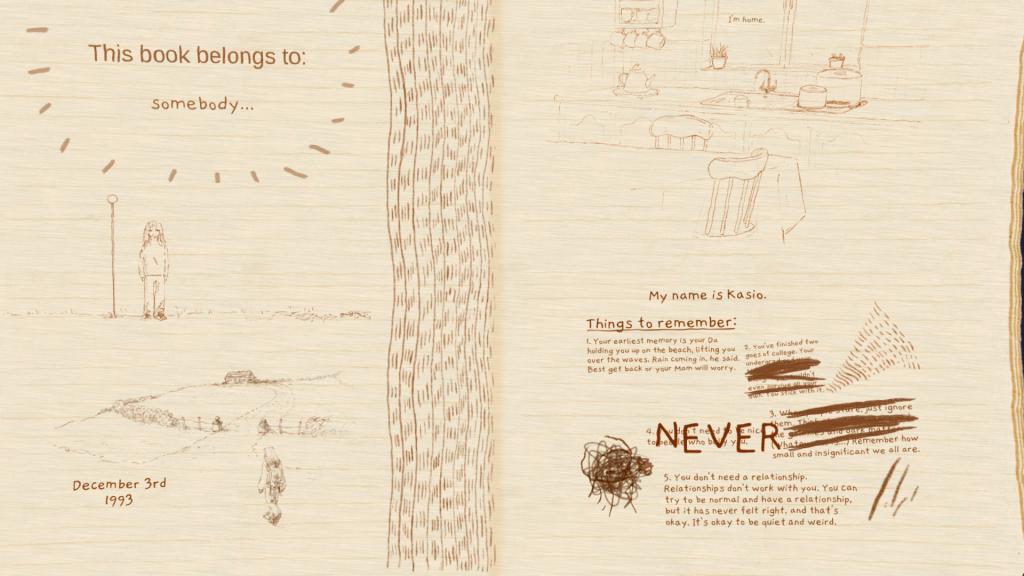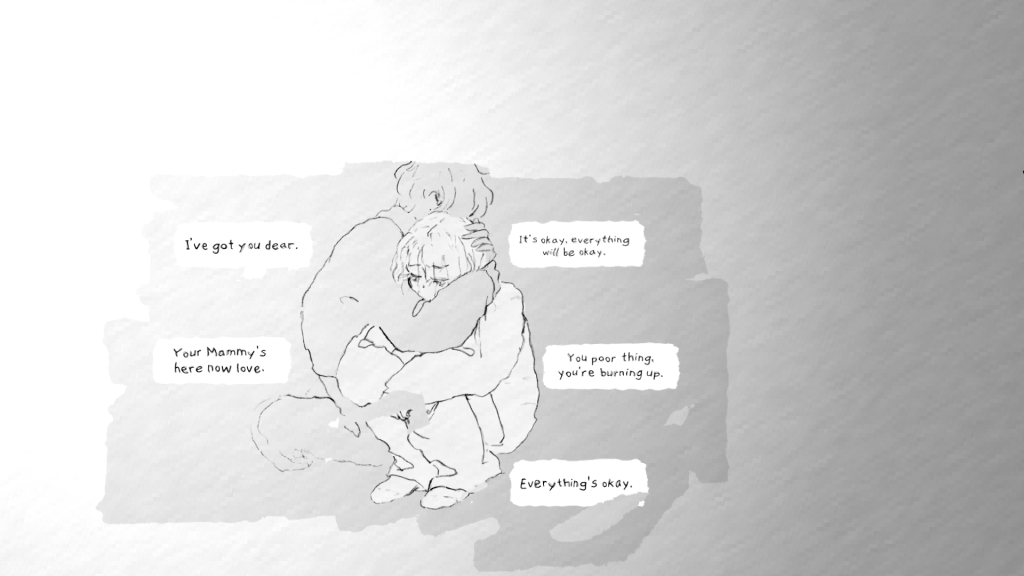
If Found’s Llaura McGee on Making a Gay AF Trans Game
In May this year, If Found made a splash. The interactive visual novel developed by Ireland-based studio Dreamfeel and published by Annapurna Interactive follows the story of a trans girl burnt out of uni returning to her home place on Achill Island. Importantly, the story that resonated with so many both in and out of the community was developed by a team composed almost entirely of queer, trans, and nonbinary developers. Llaura McGee, who you may know from the 2014 indie darling Curtain, heads the studio, and I talked with her on the eve of If Found’s launch.
“It’s pretty rad to make a gay ass trans game, and to get paid for it, ” McGee says of the project. She traces the start of development on If Found back to 2015. A year after Curtain and several awards later, she had made a name for herself as the celebrated trans game dev. “But I felt that that was a kind of dead-end for me,” she acknowledges. Reflecting on her career at the time, McGee explains “I needed to work with some more people again, and make something slightly bigger in scope if I wanted to make a living out of it.”
McGee found one such person in Liadh Young, a Dublin based illustrator attending the same arts and zine fairs as her. Both their interests in media and art overlapped, and on the first day they met, the duo made a game called Lianne La Havas is Unstoppable. A game about a pop star, Lianne La Havas, who travels through space. After that, the studio would form around the two.

The credits for If Found are exceptional. The array of indie talent, almost exclusively coming from Ireland’s queer community, is apparent in the game. But this diversity also extends to their workplace. When I asked about assembling the team, McGee expressed a desire to get “away from toxic workspaces where it’s about dominance and showing off.” Using trial periods in each position, the studio looks for who can work together, as artists and people, to take feedback and iterate. Though individual skill became secondary, this was not for a want of talent. “There’s just so many incredibly talented people,” POC and trans people she specifies, “that get shut out for having a non traditional career path.” People McGee ended up working with, and many more that she hopes to work with in the future.
But beyond hiring, beyond funding and leadership, is how this changes the games a studio makes. She describes the pressure in the industry to make games that other devs, the white, cisgender men, are making. She means games that draw from Mario and Metroid, and iterate only on other mens’ games. These games become better at what they do, adding more pixels and systems, while narrowing the scope of expression permitted. As McGee puts it, “the games industry is the kind of games a cis white guy would make.”
There are more stories to be told by considering different means of storytelling, however. By narrowing in on the use of interactivity, McGee considers alternatives to the status quo.
“What I really want to do and explore is games that capture moments, where different people can interpret them differently and different things can be read out of it.” She tells me. This kind of work certainly exists already, through tools like Twine’s and on platforms like itch.io, but only in the margins of games. If Found’s critical success makes it an oddity in that regard.
The alternative game Dreamfeel would go on to make revolves around one mechanic: erasure. In a different form, it had shown up before in McGee’s work, though it was “never explicitly taking something off a page, it was more like seeing through to this other dimension.” When she realized the possibility that this movement and change could replicate paper and eraser, she began to wonder just “who would be erasing their diary?”

They made a dating sim. Kasio was the player character and McGee talks about her as the same girl we see in If Found. The dates never worked out though – much like the attic scene with Shans, who was also present. McGee came to under the implicit reasoning herself years later. Kasio’s transness “was kind of my headcanon at that time, but it was never explicit,” she tells me. The game evolved over the next few years. Drawing from Twine, McGee emphasizes the importance of choice, which she claims breaks with interactive fiction tradition by asking “what does choice mean and how could that be thematically used in the game?” One of the biggest changes was making that headcanon into canon, and telling a uniquely trans narrative.
This change became unavoidable as McGee reflected on her own feelings from the start of the development. “I had emotions and feelings I wanted to express, and as I kind of dug into them and had a bit of perspective on them years later,” it became evident that these thoughts and discomforts Kasio experienced were because of her (Kasio’s) gender. “It became impossible not to write Kasio was trans.”
How the game represents queer characters is noteworthy too. No one uses “trans” or “gay”, and “queer” is ambiguously used only once, reflecting how people in Ireland in the 90s would’ve talked. This extends to how we learn about Kasio’s gender as the player too.
“I never wanted Kasio to be defined by being trans, so it was never gonna be like an upfront thing.” McGee says. There was never a decision to explicitly withhold this information from the player, though she admits that the game pointedly avoids aggressive tropes like dead naming and a “twist” reveal. I found this representation disarming as if I was witnessing a familiar conversation in an unlikely place.
Kasio is herself complex. She “isn’t perfect in how she handles things either you know, she’s 22 or 23,” McGee says as I suppress a knowing laugh, “the expectations on trans women to be fucking perfect and to have perfect gender politics and to have postgrads in gender theory and know everything is bullshit.” I’m not laughing anymore. Hearing her speak the absurdity of our lived reality out loud initially excites me. And then it wears me down. I remember all the papers in school, the arguments with my family, and all my writing on games that only found justification for itself through its breadth of knowledge and my own marginalized experiences. It makes me think of my passions that resemble Kasio’s own love for astronomy. I remember how my trumpet case sat in a closet for three years of uni while I started to transition. This perspective, which guides Kasio’s narrative arc, is a supreme catharsis. When McGee says “I’m not making a game for cis people,” I understand why.

Beyond characterization, themes also address queerness. An important through-line in If Found is “people’s expectations of who you are versus who you actually are.” While many reviews were tempted to call this universal (appropriating a trans struggle for cis feelings), If Found presents its characters with uniquely trans experiences. Shans, another trans character, quickly develops feelings out of his friendship with Kasio. He “kind of sees Kasio as their savior.” Their relationship breaks apart as Shans starts to figure their own gender out and aggressively idolizes Kasio for her trans seniority. A painfully familiar story.
Much of the conflict takes place within Kasio’s family, and this too takes a trans angle. Kasio’s mom takes issue with her daughter’s education, career, her friends, but also her presentation. The mom goes so far as to martyr herself, evoking an eerie recollection of so many coming out stories. These things, as McGee explains and I could reiterate, serve almost as proxies for a person’s early displays of queerness. Other families are represented too. Shans’ family, immigrants from India, are supportive of him, whereas Colum’s are hostile, save for his closeted aunt.
But these threads resolve in the end. At her lowest point, Kasio’s mom is there for her daughter. It’s an ending that begins their relationship. Not that it always was. Kasio’s tense resolution with her mom during the finale was originally left ambivalent, but McGee says it became important for her to focus on a trans story with a happy ending. Colum never makes up with his immediate family, but he’s still happy living where he grew up and getting married there. Shans, now Anu, has come to better understand and express their own gender outside of Kasio. And for the first time, we get to make a choice. Erasure becomes creation as we write from many futures, filling in a diary page with epilogues. We choose which for Kasio. All positive in some way, yes, but nonetheless suggestive of different possibilities. If Found uses this choice to express queer agency, and I see no better way of concluding the game than with a picrew-esque character creator.
At the end of our conversation, McGee tells me “I want people to realize that games A) are made by people and 2. anyone can make them.” From its sketchbook art style to its character creator, to the very people developing the game, If Found is itself an expression of that desire.





